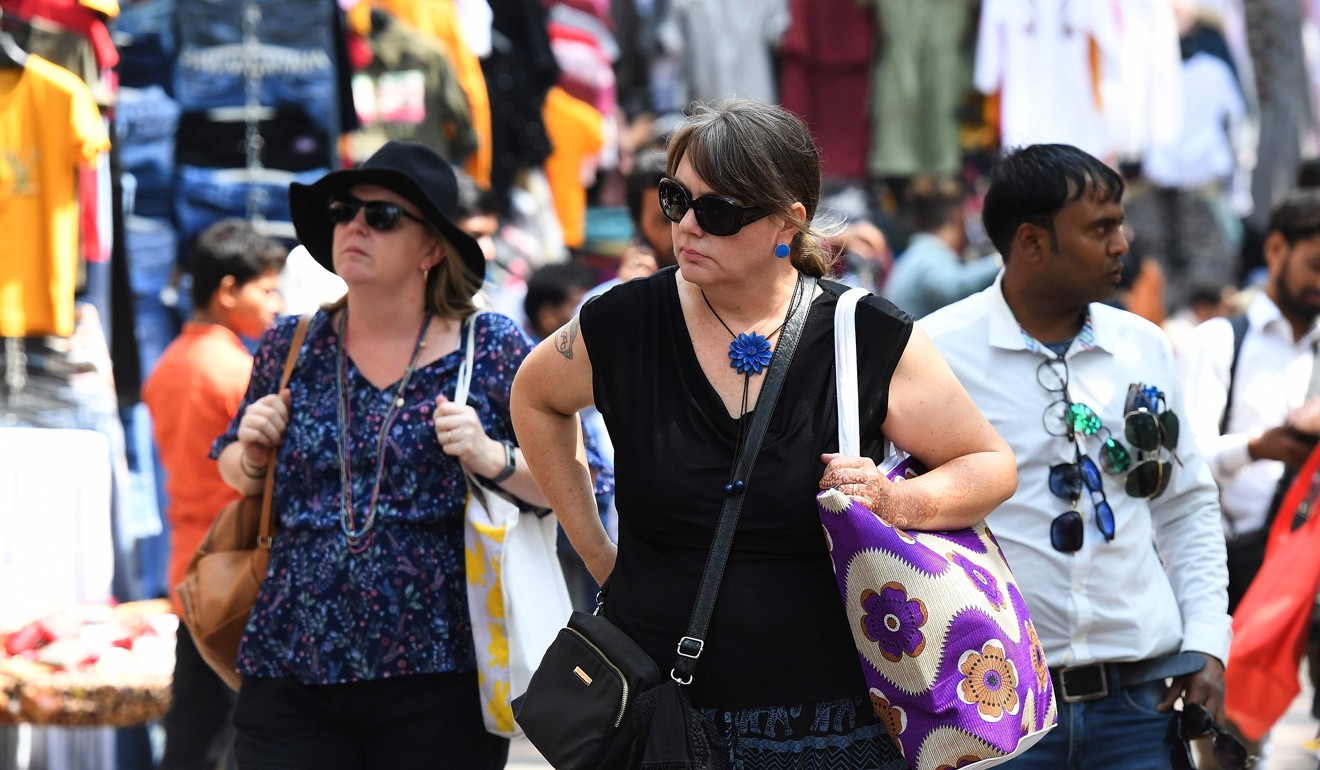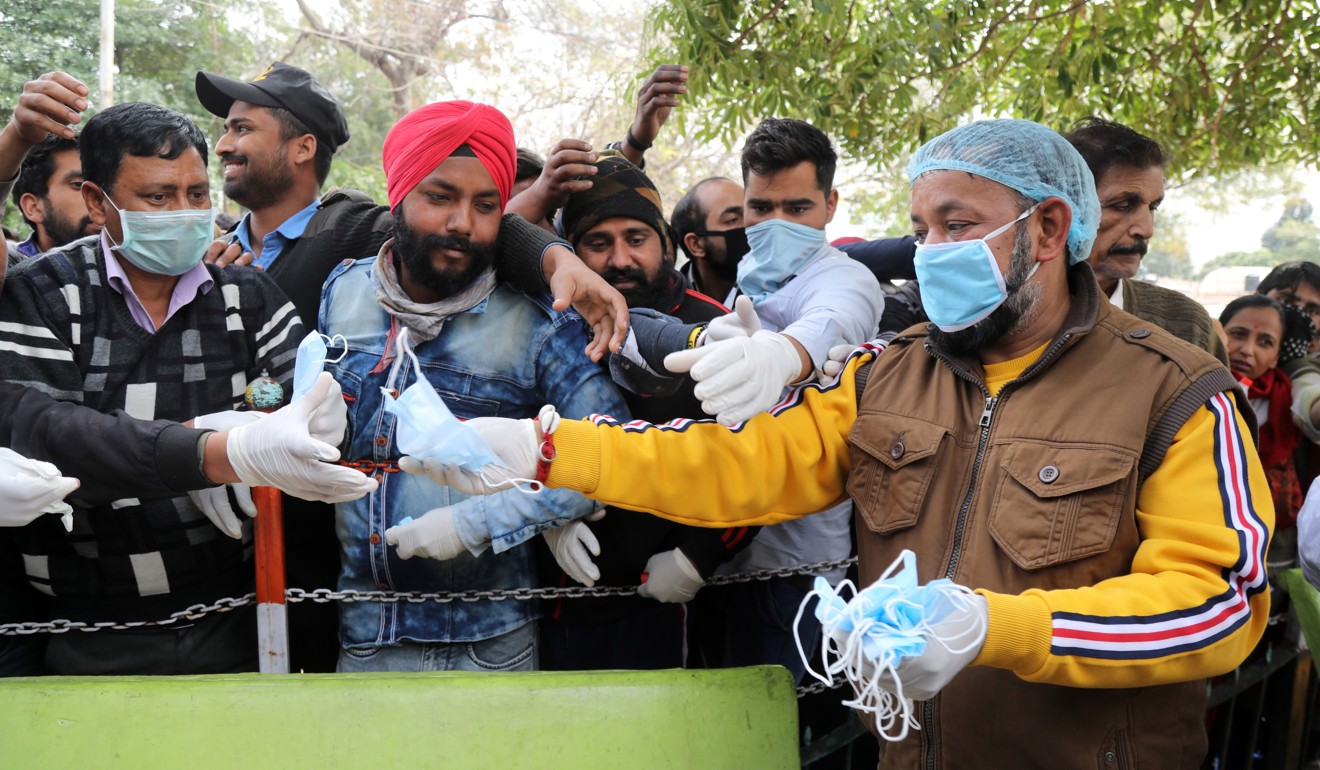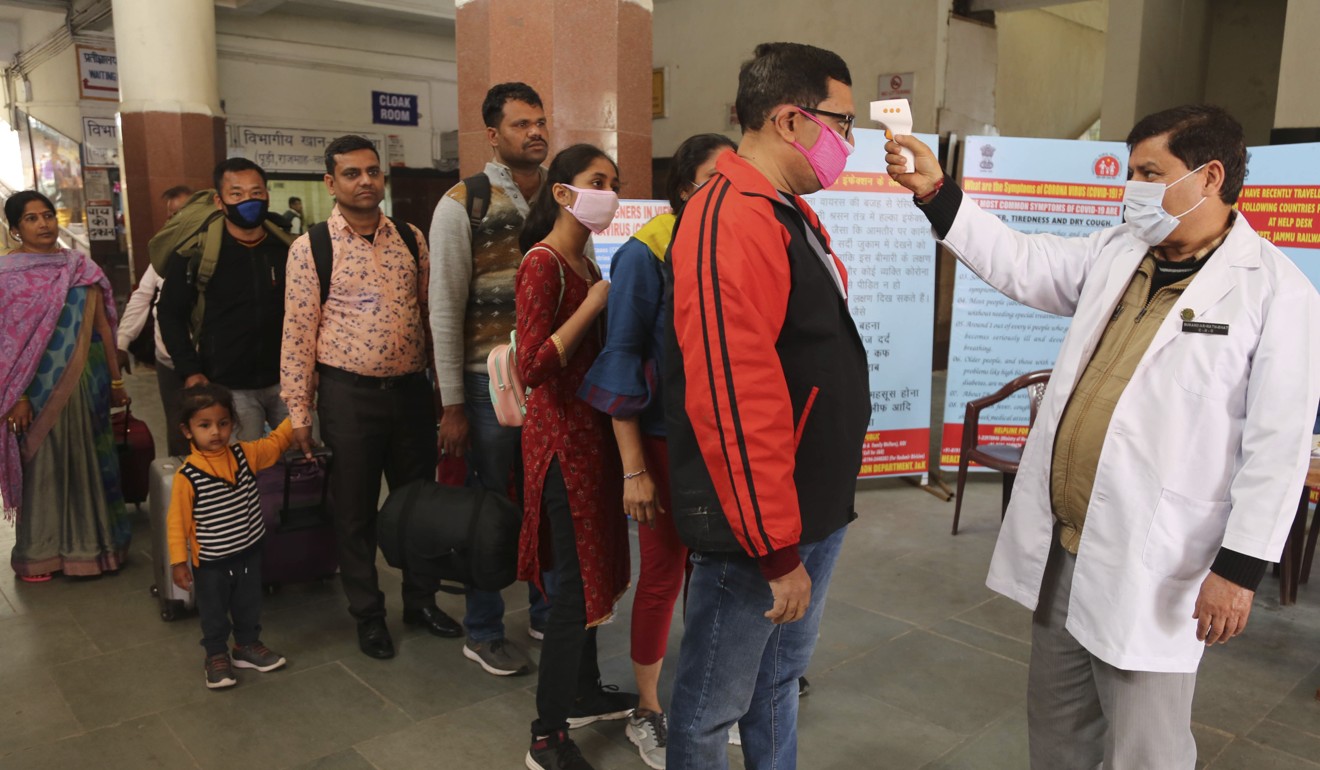
India’s visa restrictions leave travel firms in crisis, as coronavirus cases rise to 73
- New Delhi’s decision to temporarily shut its borders comes as cases rise twelve-fold over eight days, from just six infections on March 3
- While the travel sector has been left reeling, a public health doctor says the move will prevent India’s already inadequate health system from being stretched
“From making 20 to 25 new bookings every day, our bookings had gone to about two to three a day ever since the coronavirus broke out across the globe,” Dhanani said. “But we kept hoping that things would improve.”
The government also decided to bar foreign citizens of Indian origin from visa-free entry during this period, and announced a 14-day quarantine period for all travellers arriving from China, Italy, Iran, South Korea, France, Spain and Germany after February 15.

The restrictions have come as a blow to the travel industry, and to operators like Dhanani.
“The business is finished. We now have more cancellations than bookings and we are bleeding money because of these cancellations,” he said.
Dhanani’s firm caters to India’s A-list business – its popular Hindi film and television industry. The company’s clientele includes production houses which produce big-ticket feature films as well as television commercials.
With the travel lockdown, shoots planned in exotic foreign locales have now been put off or cancelled. “There is so much fear that people are now refusing to even travel domestically,” Dhanani said.
In India’s tech hub of Bengaluru, hoteliers are raising similar concern. At The Den, a luxury hotel, the management fears that business will be halved. “We have already received cancellations for international bookings for the next six weeks," says Vinesh Gupta, general manager at The Den. “We fear that all international travel will come to a stand still for the next six to eight weeks.”
On social media, travellers and visitors have expressed confusion over the new visa restrictions.
One Indian travel agency operator, who did not wish to be named, said that passengers were confused and were seeking clarifications from airlines who seemed unprepared for the questions.

The western state of Maharashtra has recorded 11 cases, while the virus on Wednesday reached India’s financial capital of Mumbai, where an elderly couple who had recently travelled to Dubai tested positive.
In India, where cities can have crushing densities that go as high as an average of 31,700 people packed into one sq km, containing a viral outbreak would be a mammoth task.
“This is a step that can be described as taking abundant caution,” said Abhay Shukla, a public health doctor and the national co-convenor of the People’s Health Movement.
“Currently, all the cases India has seen are primary cases – they are either people who have travelled to affected countries and carried the virus or are those who came in contact with such persons,” he said. “We have not seen secondary transmission of the disease in India yet. Hence, this step seems to be taken to prevent such large-scale transmission.”

An outbreak would also stretch India’s already inadequate health care system.
According to data from the World Bank, India has an average of 0.7 hospital beds per 1,000 people, against a global average of 2.705 beds. Similarly, while the global average of the number of doctors serving 1,000 persons is 1.5, in India it is 0.7.
The country also fares dismally when it comes to nurses and midwives – with India having only 2.1 nurses and midwives per 1,000 people, compared with a global average of 3.4.
“The Indian health care system is ill-equipped for a large outbreak of such a disease. From tracking the spread of the virus to screening large number of persons and then isolating the infected, the country’s health systems, especially in urban areas, don’t seem to be in a state to deal with this,” Shukla said.
Meanwhile, the Indian government’s announcement has cast an uncertain shadow over several high-profile events, including sporting events, film awards and corporate events.
Similarly, the Indian Open badminton tournament is likely to be played before empty audience stands, with the country’s badminton association deciding to not allow spectators in the games, starting on March 24.

